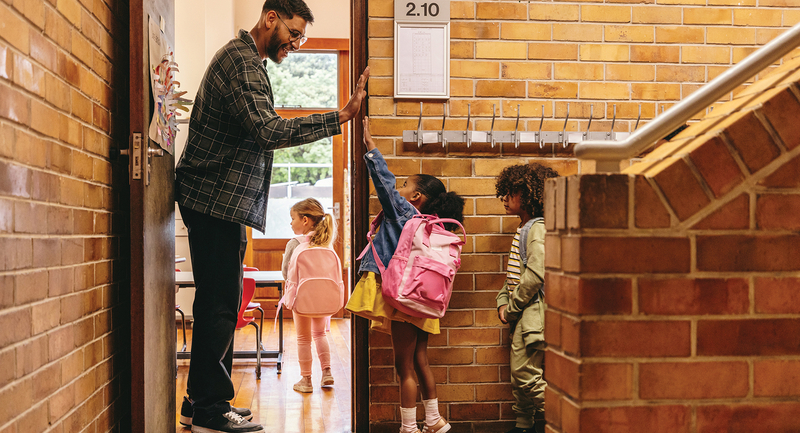June 1, 2019
•
5 min (est.)•
Vol. 61•
No. 6To Be a Champion for All Students, Confront Biases
When educators are not aware of their assumptions, they have the potential to be judgmental of students and teachers who do not fit into their preconceived ideal.
When I first started teaching high school in the mid-90s, I wasn't fully ready for what I would face. Having been recently cut from the NFL (Minnesota Vikings) during training camp, I walked off the football field and into a classroom with my own anxieties, regret, anger, disappointments, and shortcomings.
I wore my hair in cornrows, braids, or an afro when I taught. I dressed and wore my hair then based on how I felt at the time. Once I realized that most kids also dress and wear their hair based on how they feel, I realized that I could relate to students who felt misjudged based on assumptions about their appearance.
When I went to interview for the teaching job, the panel members stared at me for several minutes before saying a word. One of the panelists repeatedly looked down at my resume (I was enrolled in graduate school at the time and had a 3.5 GPA) and back up at me. His implicit biases were very apparent. I couldn't help but think, "Just because people wear their hair in braids or in an afro doesn't mean that they are thugs or criminals." It didn't mean I didn't have the credentials to do the job effectively. Young men are rebellious; my hairstyle was "in" back then. I wondered if I would be denied an opportunity because of my outward appearance. I could tell that the panelist was wrestling with his perception that the person I was on paper didn't match the person he saw in front of him. He couldn't hide his feelings and thoughts.
After a stellar interview, I got the job. However, once on the job, I was again subject to a colleague's perceptions.
On my first day of teaching, I was taken to the office by another teacher who thought I was a student late for class. Although I explained to her that I was a new teacher and I was on my prep period, she insisted on taking me to the office anyway. I eventually gave in so that she would stop making a scene in front of the students and staff. When we got to the office, the principal said to her, "Let go of Mr. Jackson's arm." The teacher's mouth dropped open, but she never apologized, nor were there any repercussions for her actions. I wonder whether I would have been let off so easily if the shoe had been on the other foot. Probably not.
Everyone has biases, learned over time from the people we are surrounded by and from our experiences. Biases can slip into your decision making in the classroom or into the culture of your building (if you are an administrator). This teacher's perception convinced her that I was a student. Maybe your perception of a student leads you to assume he is a nuisance, a troublemaker, nonchalant, mean, or otherwise a problem in your class before you have even given him a chance. Be mindful of your assumptions. If you don't allow yourself to see who that student really is, you will see only what you expect to see.
Anytime I'm speaking to a group of educators and ask them if they have biases, most everyone raises their hands. When I ask the same individuals to voluntarily state their biases, everyone remains quiet. No one wants to share their biases (because most people don't want others to know what they are), but students are unfairly exposed to and judged by them every day. When educators are not aware of the repercussions of their biases, they have the potential to be unfair to and judgmental of students who do not fit into their definition of an ideal student. For young Black or Latino men, this can be particularly damning.
You can begin confronting your bias by reflecting on your actions as an educator. Ask yourself: What happens when a Black or Latino male student doesn't exemplify characteristics of what I deem a "good" student? How is he being treated by me and my colleagues? Where do I see him going in the future? How empathetic am I to his needs? How much confidence do I have that he can be a great student?
There is no perfect educator out there. Everyone has flaws. My colleagues thought that because my kids looked like me, I had it easy in the classroom, but I didn't. I also had to deal with my own issues, including the stereotypes that I associated with the young Black and Latino men I worked with.
Having empathy will give you what it takes to turn any student around. Are you that one caring adult that your students need to hear from daily? Are you speaking success into your Black and Latino male students? Claim your students as your success stories and they will never forget it or you. Treat them like they are yours and they will follow you and believe in you.








